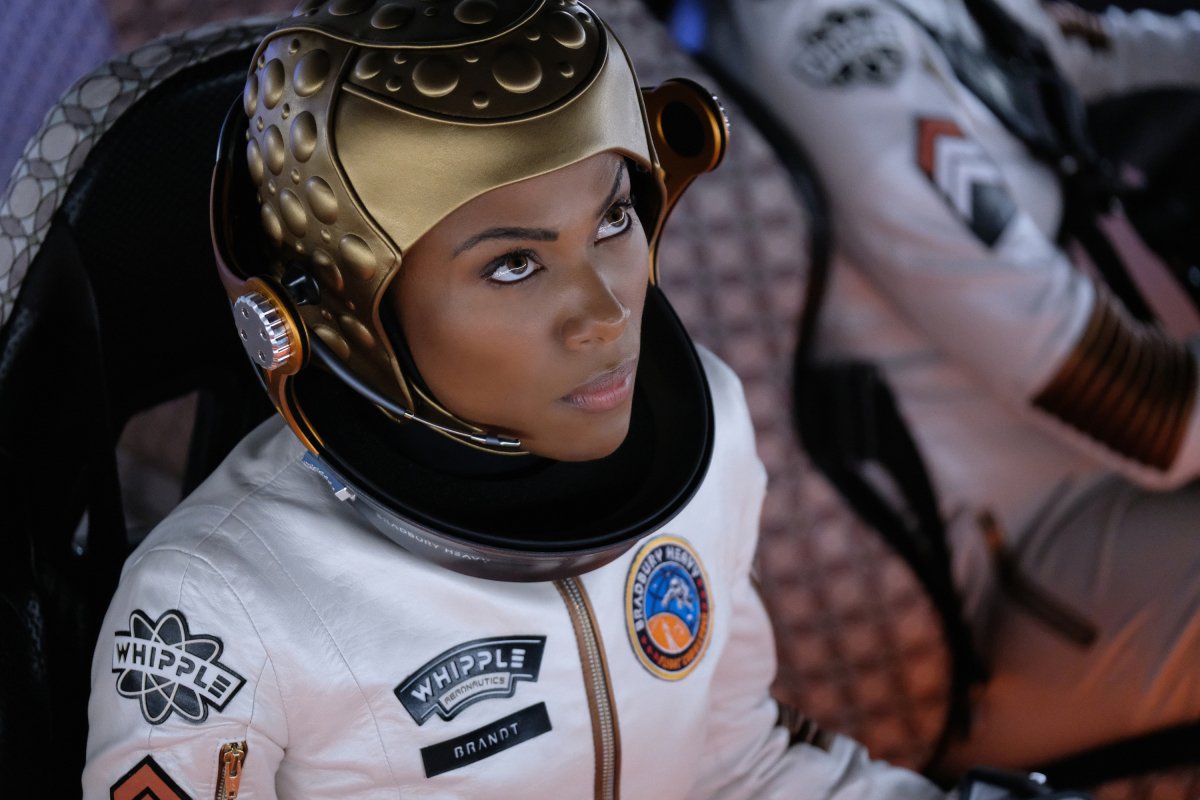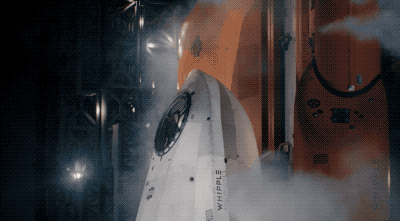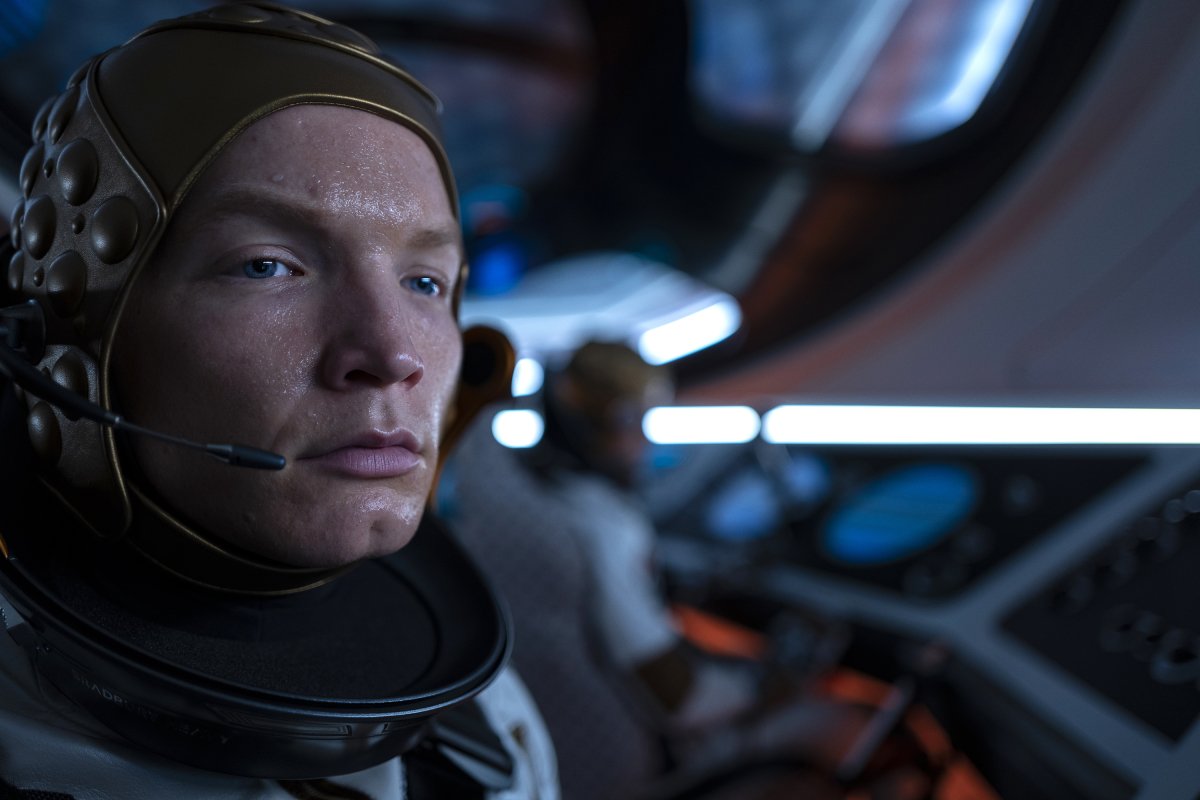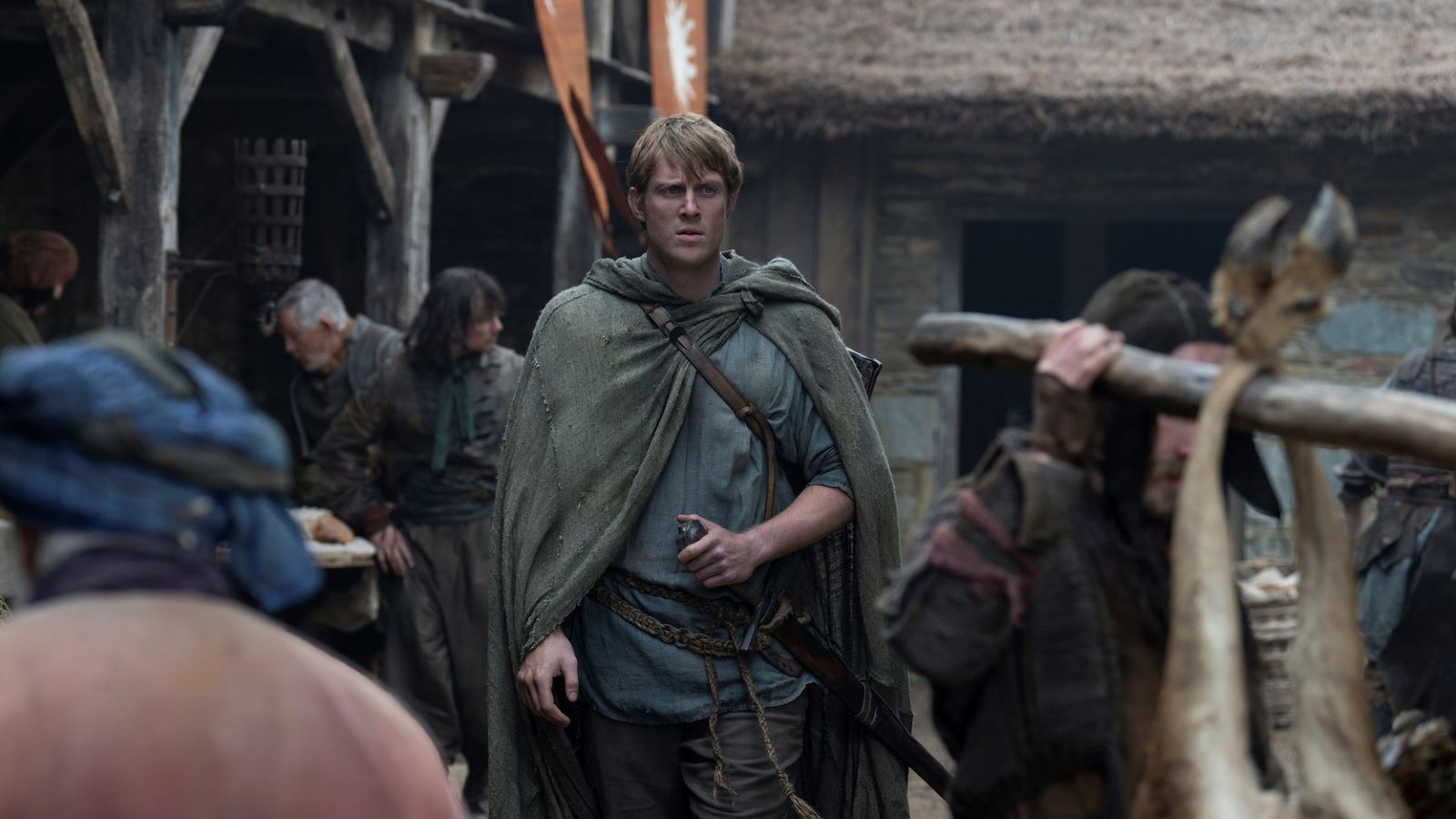
Is this the real life?
Is this just fantasy?
Caught in a landslide
No escape from reality
Open your eyes
Look up to the skies and see
It's certainly a stretch to use the Queen's epic Bohemian Rhapsody as a metaphor for the sixth episode of The Twilight Zone on CBS All Access , but there it is, all laid out for us.
The same is true for much of "Six Degrees of Freedom." The foreshadowing is there for anyone to see. Astronauts triumphantly make their way into their spacecraft for the Bradbury Mission, the first manned mission to Mars. The TV commentary is full of exposition, including the extremely conspicuous porthole that's directly over the commander's seat — to protect them from radiation, it's said, from launch to landing.
But this much is painfully obvious: There are no windows on this ship. No way to use the ol' Mk I Eyeball to actually see what might be going on outside.
That's — that's almost certainly going to be a thing, right? (If you have yet to watch 2014's Ascension , now would be a good time.)

Then we meet TINA — the Transport Information Network Artificial Intelligence Unit. Is TINA going to go all Hal on everyone? I mean, of course she will, right? How could she not?
The first twist comes nice and early in this episode. (Thanks for not making us wait for it!) Mission Control calls a hold, and they're a little freaked out by it. The problem? Inbound ICBMs from Russia and North Korea. Seattle and Los Angeles are already gone, and Wells Spaceport is also targeted, and everyone on the ground is bugging out. And the U.S. has fired 45 missiles back in response.
The latest updates, reviews and unmissable series to watch and more!
Things are not going well.
It's decision time on the Bradbury. What's less worse — launching a spacecraft without any support from the ground, or evacuate the ship and head down, with the probability, Mission Specialist Jerry Pierson notes, that "we'd be vaporized by the 25th floor."
The discussion doesn't last too terribly long, and it ultimately takes the Bradbury skyward. (Is transferring all control to the ship and launching without any support from the ground even possible? Well, it is here.) From here on out, TINA is in control.
The ascent is simple enough, with on-board cameras keeping an eye on the engines. (But apparently unable to show anything that was going on outside the ship in any other useful way.)
The next decision — orbit Earth, or head to Mars? They have no idea what's going on down on the ground, though radio broadcasts point to hits in Washington, D.C., New York City, Los Angeles and Chicago. (Presumably the Bradbury was launching from one of those cities, or Seattle.)
And that leads us to another decision. Can they open the porthole to see what's going on? "Yes, if we remain in orbit," Pierson says. "No, if we're going on to Mars." (Seriously, how useless are those cameras in the first manned spaceflight to another planet?)


A rational person would probably decide that heading off to Mars is a bad idea. Pierson starts going on about "The Great Filter," which "posits that life in the universe is very, very rare. It's harder to start, harder to continue." The real test, he says, is whether life can make it to another planet before it kills itself, and that's why we've yet to find any other life out there in the cosmos. The storm seems pretty forced — and nobody utters a word about maybe eventually getting help from the ground.
So, on to Mars we go, even if it's not quite a unanimous decision. The "tethered SATs" — little tethered rocket satellites that'll spin the ship and create "rotational pseudo gravity" for the trip are deployed. And if you wanted another sign that maybe they're not actually in space, here you go. Because in space everything floats. No such problems now. (Except for the pen that Pierson briefly saw hang in the air.)
Most of the trip itself is pretty uneventful. Everyone's more than a little on edge, of course. No real surprise there, and it's not a intergalactic space story unless someone goes a little crazy. They recreate a few of the scenes from The Matrix about what's real and how you could tell, but otherwise just keep on keeping on. Mostly.

Crew members are having nightmares. The steamy sex scene is a red herring. Pierson is keeping some sort of diary with some sort of data. What's he writing down? And why is he ... rooting through the space toilet? And why in the name of all things holy is he doing it bare-handed? Please ... Please don't smell your fingers!!! Then Pierson thinks he sees someone — something? — in one of TINA's monitors. Just for a brief second.
It's Flight Commander Alexa Brandt's birthday, with a little more than two months left to go. They have a little party. They give her a little slide whistle thing as a present. But it's Pierson who has the real gift. He's going to tell everyone what's really been going on. How it's all a big experiment, in his opinion, and he started questioning things right as they got onto the ship.
Conveniently, TINA — the ship's computer with the world's worst timing — starts throwing sparks and complaining about an incoming solar flare that's going to fry them all unless they move a heat shield or something. (Not that they could actually see it move, right?) The more Pierson explains what he thinks is going on, the more ornery TINA starts to behave. Sparks and smoke and alarms and noise.
"We're in a six degrees of freedom simulator," he finally says, giving the episode its name.
Pierson refuses to go to where he's supposed to go when such an emergency happens, and instead he decides to head to the airlock and take a walk on the wild side. It's one part Jack Noseworthy in Event Horizon and one part Cliff Curtis in 2007's Sunshine (a much better flick of this ilk). He's not immediately sucked out in the vacuum, and he's not immediately fried by the solar flare. In fact, we don't really see what happens to him.
But dude's obviously crazy, right?
Right?
I'm not going to spoil the final twist. It's both perfectly satisfying and completely infuriating, if only because nobody ever once complained about the external cameras.
There's a lot going on in this episode. There's plenty of fine acting, with a lot of it happening on top of each other.
And as the crew steps out onto Mars, you still can't help but wonder just a little bit if they actually do have any idea of where they really are — or where they might eventually end up.

Stream this
Check out the great original content
From Star Trek: Discovery to The Twilight Zone to the upcoming Strange Angel, CBS All Access has quickly become a must-try streaming service.
